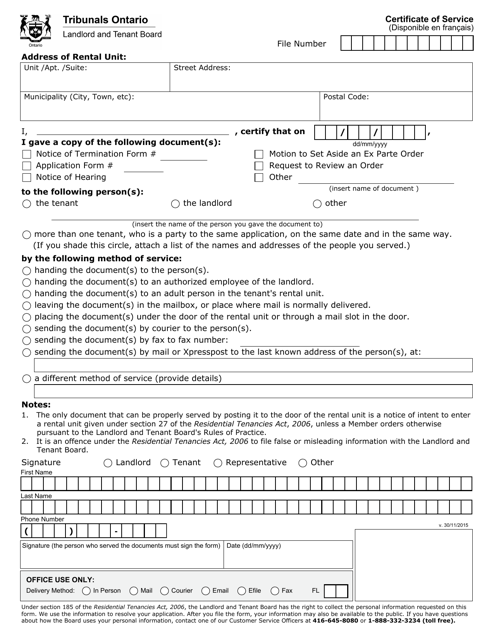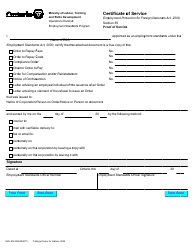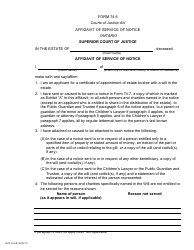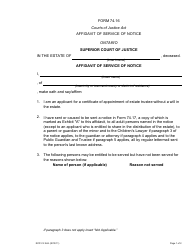This version of the form is not currently in use and is provided for reference only. Download this version of
the document
for the current year.
Certificate of Service - Ontario, Canada
A Certificate of Service in Ontario, Canada, is used to confirm that a document has been properly served to all relevant parties in a legal proceeding. It serves as proof that the document has been delivered to the intended recipients.
In Ontario, Canada, the person who files the Certificate of Service is typically the party or their representative who has served the document on the other party.
FAQ
Q: What is a Certificate of Service?
A: A Certificate of Service is a document that proves that a particular legal document or notice has been served to all relevant parties.
Q: When is a Certificate of Service needed?
A: A Certificate of Service is typically needed when filing or serving legal documents in court proceedings in Ontario, Canada.
Q: Who can issue a Certificate of Service?
A: The person who actually serves the legal document or notice is responsible for issuing the Certificate of Service.
Q: What information does a Certificate of Service include?
A: A Certificate of Service typically includes details such as the name of the person served, the date and time of service, and a description of the document served.
Q: Is a Certificate of Service required for all legal documents in Ontario?
A: No, a Certificate of Service is not required for all legal documents. It is usually necessary for documents that require proof of service, such as affidavits or court applications.
Q: What happens if a Certificate of Service is not provided?
A: If a Certificate of Service is not provided when required, it may result in delays or complications in the legal proceedings.
Q: Can a Certificate of Service be challenged?
A: Yes, a Certificate of Service can be challenged if there are valid reasons to believe that the document was not properly served.
Q: Are there any fees for obtaining a Certificate of Service?
A: There may be nominal fees associated with obtaining a Certificate of Service, depending on the courthouse and the specific circumstances.









